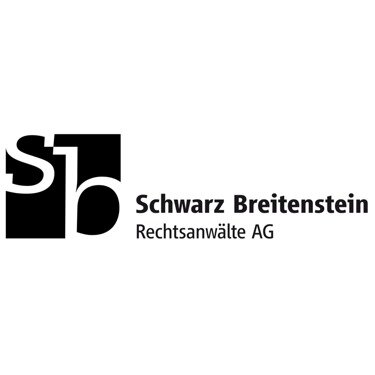Best Natural Resources Lawyers in Frauenfeld
Share your needs with us, get contacted by law firms.
Free. Takes 2 min.
List of the best lawyers in Frauenfeld, Switzerland
About Natural Resources Law in Frauenfeld, Switzerland
Frauenfeld, the capital of the Canton of Thurgau, is nestled in a region rich with diverse natural resources including agricultural lands, forests, water bodies, and mineral resources. Natural resources law in Switzerland governs the use and protection of these resources, ensuring sustainable development, environmental protection, and economic efficiency. These laws address a wide range of issues from water rights, agricultural land use, forestry management, to mining and environmental conservation.
Why You May Need a Lawyer
There are several scenarios where legal expertise in natural resources may be required in Frauenfeld. Common situations include disputes over land use, water rights, or environmental compliance. Landowners and businesses may need assistance with permitting processes or navigating regulatory requirements. Additionally, local development projects often require legal oversight to ensure they meet environmental laws and sustainable practices. A lawyer specializing in natural resources can provide critical guidance and representation in these cases to protect interests and ensure legal compliance.
Local Laws Overview
The legal landscape in Frauenfeld concerning natural resources is shaped by both national and cantonal legislation. Key areas include the Forest Act, the Waters Protection Act, and the Law on Spatial Planning, which dictate the sustainable use and protection of natural resources. The cantonal laws emphasize sustainable agriculture and forestry, responsible mineral extraction, and the conservation of natural habitats. Enforcement is carried out by various governmental agencies tasked with both the protection and the sustainable utilization of natural resources.
Frequently Asked Questions
What are the primary regulations affecting natural resources in Frauenfeld?
The main regulations include the Swiss Federal Act on the Protection of Nature and Cultural Heritage, the Federal Act on Forests, and the Federal Act on Water Protection. Additionally, cantonal laws specific to Thurgau address local nuances in resource management.
How can I obtain a permit for land development?
You must apply through the local municipality offices. The application will be reviewed for compliance with environmental rules, zoning laws, and community planning regulations.
What steps should I take if I find contamination on my property?
Immediately report it to the local environmental authority. An assessment will be conducted, and remedial actions will be recommended. Legal counsel is advised to navigate these proceedings.
How does the government enforce environmental laws?
Enforcement is carried out by cantonal authorities in Thurgau, who oversee compliance and investigate violations with the help of specific agencies handling different resources like water, forestry, and wildlife.
Are there incentives for adopting sustainable practices in natural resource utilization?
Yes, the Swiss government provides subsidies and tax incentives for sustainable agricultural practices, energy efficiency improvements, and renewable energy adoption.
What legal challenges might farmers face concerning land use?
Farmers may face challenges related to zoning restrictions, water usage rights, and compliance with sustainability practices as outlined by both federal and cantonal laws.
Can I contest a decision made by a local environmental authority?
Yes, decisions can be contested via a formal appeal process. Legal assistance is strongly recommended to increase the chances of a successful appeal.
How are water rights determined in Frauenfeld?
Water rights are allocated based on historical usage, legal entitlements, and sustainability criteria as outlined under the Swiss Water Protection Act.
Do local laws address climate change mitigation?
Yes, local laws incorporate measures for renewable energy integration, energy efficiency, and carbon footprint reduction as part of broader national climate strategies.
What role do NGOs play in natural resource management in Frauenfeld?
NGOs often act as advocacy groups, providing oversight and raising public awareness about sustainable resource management and environmental protection efforts.
Additional Resources
For further information or assistance, consider reaching out to:
- The Cantonal Office for the Environment and Energy Thurgau (Amt für Umwelt und Energie Thurgau)
- The Swiss Federal Office for the Environment
- The Thurgauer Bauernverband (Thurgau Farmers' Association) for agricultural concerns
- Local chapters of environmental NGOs, such as Pro Natura Thurgau
Next Steps
If you require legal assistance concerning natural resources in Frauenfeld, it is advisable to consult with a lawyer specializing in this field. Begin by researching local law firms with expertise in environmental and natural resources law. Scheduling a consultation can provide clarity on your legal position and help formulate a strategy to address your issues.
Prepare all relevant documentation and clearly outline your situation when consulting with a lawyer to ensure they can provide the most effective advice and representation.
Lawzana helps you find the best lawyers and law firms in Frauenfeld through a curated and pre-screened list of qualified legal professionals. Our platform offers rankings and detailed profiles of attorneys and law firms, allowing you to compare based on practice areas, including Natural Resources, experience, and client feedback.
Each profile includes a description of the firm's areas of practice, client reviews, team members and partners, year of establishment, spoken languages, office locations, contact information, social media presence, and any published articles or resources. Most firms on our platform speak English and are experienced in both local and international legal matters.
Get a quote from top-rated law firms in Frauenfeld, Switzerland — quickly, securely, and without unnecessary hassle.
Disclaimer:
The information provided on this page is for general informational purposes only and does not constitute legal advice. While we strive to ensure the accuracy and relevance of the content, legal information may change over time, and interpretations of the law can vary. You should always consult with a qualified legal professional for advice specific to your situation.
We disclaim all liability for actions taken or not taken based on the content of this page. If you believe any information is incorrect or outdated, please contact us, and we will review and update it where appropriate.








